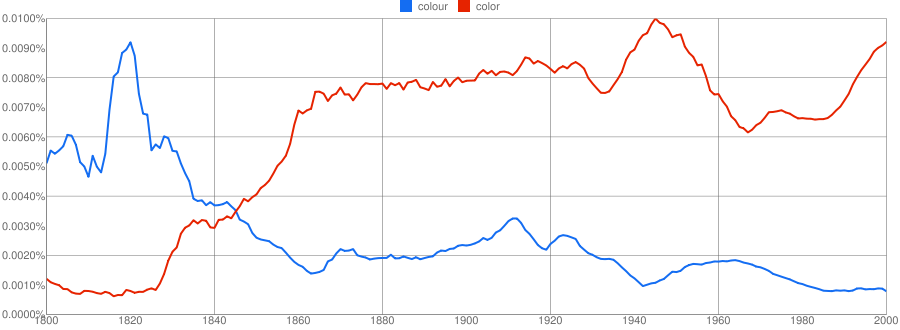How come 'ou' was reduced to 'o' in the US?
Hire the world's top talent on demand or became one of them at Toptal: https://topt.al/25cXVn
--------------------------------------------------
Music by Eric Matyas
https://www.soundimage.org
Track title: Puzzle Island
--
Chapters
00:00 How Come 'Ou' Was Reduced To 'O' In The Us?
00:14 Accepted Answer Score 51
00:56 Answer 2 Score 13
01:20 Answer 3 Score 4
02:22 Answer 4 Score 14
02:37 Thank you
--
Full question
https://english.stackexchange.com/questi...
--
Content licensed under CC BY-SA
https://meta.stackexchange.com/help/lice...
--
Tags
#orthography #history #pronunciationvsspelling #transatlanticdifferences #oou
#avk47
ACCEPTED ANSWER
Score 51
The pronunciation is the same, so you can't really say that some "say" this while others "say" that. It's strictly a spelling difference.
These are among the reforms introduced by Noah Webster in his dictionary, with a view towards (a) simplifying the spelling, and (b) creating a distinct American English. (The root forms of many of these words indeed lack the u - for example, Latin color, Italian favorito - so that may have been another motivation of his as well.) So these forms prevailed in the United States, while in the rest of the English-speaking world they kept the original spellings.
ANSWER 2
Score 14
Not sure how to post a comment, but this is an interesting use of Google's Ngram Viewer. We can see that between 1840 and 1850 color overtook colour (using their American English dataset).

ANSWER 3
Score 13
The reduction of 'our' to 'or' happens when the ending is unstressed (my accents on the stress):
cólour, flávour, hónour, néighbour, rúmour, lábour, húmour
but not when it is stressed
contóur, velóur, paramóur, troubadóur
This is very well explained (surprise) in Wikipedia
ANSWER 4
Score 4
I have heard an alternate explanation - Newspaper reporters would telegraph their stories to the main office for inclusion in the paper. Saving space and reducing the cost of the transmission was important so editors issued a decree to drop 'useless letters' from spelling. Since newspapers were the most distributed mass written product to all levels of American society the spellings they used became the standard.
I have some problems with this - for one I've had a hard time verifying it, for another - I thought telegraph operations were charged by the word - not the letter. From some experience (now 30 years ago - who sends telegraphs now ??) there was a 10 character limit on a word - over 10 characters you got charged for 2 words. Was this the case in the mid 1800's - who knows.
Update: It seems that instincts were correct in questioning this. Both snopes and various fact-checking websites confirm it's a myth.
I would imagine the actual answer is some compound of all of the formal attempts to simplify, common usage and general evolution.